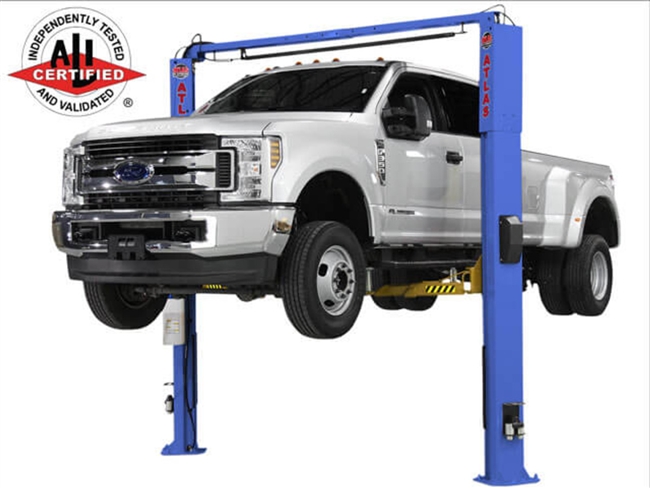TRUCK LIFTS
Comprehensive Truck Lift Maintenance Guide

Risks of Skipping Maintenance
- Safety Hazards: Poor maintenance can cause lifts to malfunction, risking injuries and damages.
- Higher Repair Costs: Ignoring minor issues can lead to expensive repairs or replacements.
- Downtime: Malfunctions delay operations, costing time and money.
- Voided Warranty: Regular maintenance is often required to keep warranties valid.
Daily Checks
- Visual Inspection: Check for cracks, leaks, or wear on load-bearing parts.
- Safety Locks: Test locks to ensure they engage properly.
Daily checks ensure your lift is safe and operational before heavy use.
Weekly or Monthly Maintenance
- Hydraulic Systems: Check fluid levels and refill if necessary.
- Cables and Bolts: Inspect for fraying and tighten bolts.
- Lubrication: Apply heavy-duty lubricants to reduce wear.
Routine maintenance minimizes malfunctions and ensures smooth operations.
Annual Inspections
- Load Testing: Verify the lift’s capacity and safety under full load.
- Full System Check: A technician inspects hydraulic, mechanical, and electrical systems.
Annual inspections ensure long-term safety and compliance.
Post-Incident Maintenance
- Immediate Inspection: After heavy use or incidents, inspect for potential hidden damage.
Post-incident checks prevent undetected issues from escalating into major problems.
Steps for Long-Term Efficiency
- DIY Tasks: Lubricate, clean, and tighten bolts regularly.
- Professional Services: Leave hydraulic repairs, load testing, and diagnostics to experts.
- Follow Guidelines: Use the manufacturer’s manual for specific maintenance intervals.
